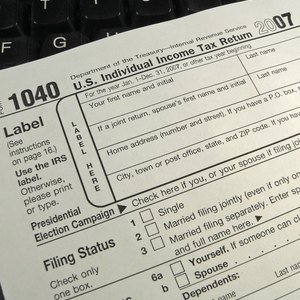
Tax professionals are in a unique position because the work they do for their customers leaves their customers responsible for any mistakes made or potential fraudulent claims. Once the taxpayer signs the return, or the electronic equivalent, the taxpayer assumes full responsibility for the information provided. The IRS has defined and sharpened the requirements for taxpayer ethics and professional standards in Circular 230.
Law
It is required that tax preparers stay up-to-date on both state and federal laws in regard to accounting. Each year, the IRS provides a nationwide tax forum. Tax professionals from all over the country attend these forums to learn about the latest changes to both federal and state tax law. It is not unheard of for tax law to change during a typical tax preparation season. Both major associations of tax professionals require their members to educate themselves through these forums or through other methods. States require that CPAs complete a certain number of hours of continuing professional education. Failure to do so can result in the CPA losing that designation.
Protecting Clients
The laws passed on an annual basis may or may not affect a tax professional's clients. The key expectations of both tax professionals associations is that the professional use his knowledge of these laws to protect his clients. Some laws result in a client paying more; others result in a client paying less. The key job of a tax professional is in his knowledge and the application of that knowledge to protect his clients from possible fines or penalties.
Individual Needs
A tax professional will be aware that each client has individual needs. One client may actually center his annual budget around receiving a large income tax refund at the beginning of the year. Some clients may need help tax planning through the year to avoid owing money at the end. Each client will have a unique need and the ethical requirement for tax professionals is to attempt to meet those needs in a legal and efficient method.
Privacy
Tax professionals must take sufficient measures to ensure the privacy and confidentiality of their clients, according to IRS Circular 230. Due to the nature of their work, tax professionals are privy to extremely sensitive personal information on each client. It is the job of the tax professional to protect that information. Filing cabinets containing taxpayer information must be secured, should the IRS ever perform an audit of the tax professional's business.
Standards of Conduct
IRS Circular 230 is a 48-page publication that sets forth the rules and standards for both attorneys and certified public accountants who practice in the field of tax preparation and representation. Each of the two major associations that organize tax preparation professionals has adopted their own standards of professional conduct based on Circular 230.
The Standards of Professional Conduct for The National Association of Tax Professionals is a list of 11 standards based on one of three different responsibilities. The first responsibility is to protect and advise the client. The second is to the tax professional, who has a responsibility to conduct himself and his practice in such an ethical way that he will not jeopardize his reputation or self-respect. The third is to the government. While his fiduciary responsibility is to the client, the tax professional cannot forget that he may be called to explain and represent decisions made on the return before the IRS. As such, ethics play a vital role in the balance between representing the taxpayer, yet satisfying the legal requirements of the federal government.
References
Writer Bio
David Roberts has been writing since 1985. He has published for various websites including online business news publications. He has over 11 years experience in tax preparation and small business consultation. He is also a Certified Fraud Examiner. He received a Master of Business Administration from Florida Metropolitan University in 2005.

